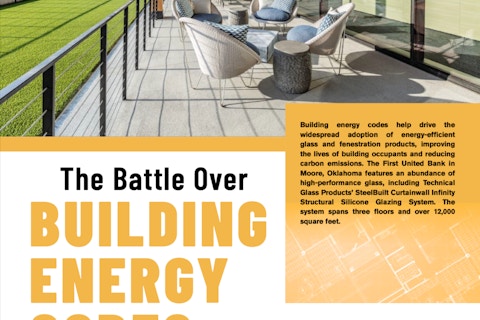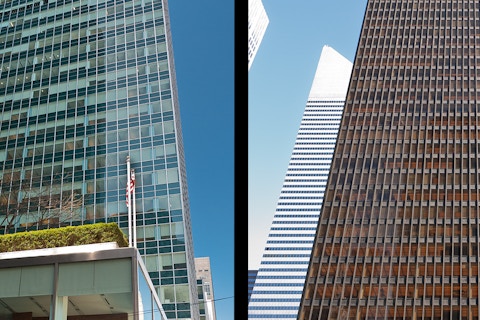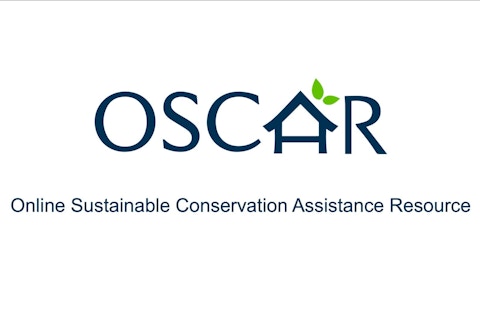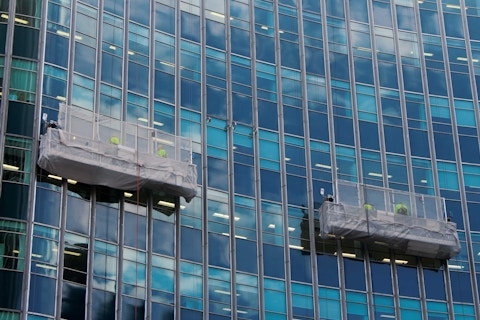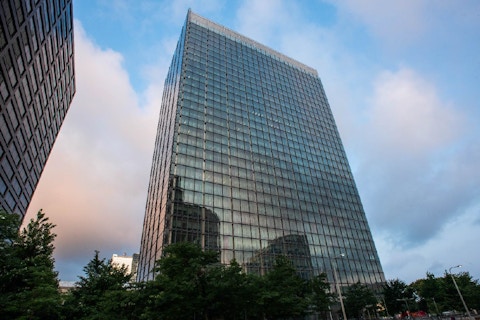Stop F*cking Around – Build Our Zero Carbon Economy Now
Stop f*cking around!
Hopefully I’ve grabbed your attention… In a world where Instagram influencers overload us with “positive posts,” it’s important to remember that the future of humanity will be defined by the positive influence of those who are willing to stick out their necks and call for radical and immediate change. This looks more like screaming “the Earth is in danger” in someone’s face than a sultry smile and hashtag in a social media feed. It might be cringey, but it’s necessary.
It takes courage to stand up and say something that cuts against the current state of normalcy in the world. Rosa Parks and Harvey Milk had enormous courage taking a stand and calling for change in the civil rights and LGBTQ+ movements. Today, environmental leaders around the world are raising their voices and exerting their influence to transform our entire global economy away from fossil fuels and taking on one of the largest industries in the world – oil and natural gas. Thank you Greta, thank you Bill McKibben, thank you Jamie Margolin, thank you Leah Thomas, thank you Stephanie Suganami Shepherd. Your fight for climate action will live forever in your legacies.
We’re facing a global climate crisis and keeping it positive all the time doesn’t work when fighting against entrenched interests – racism, homophobia, big oil. We need to stop politely asking and start angrily demanding. Businesses in our current carbon intensive economy are incentivized to resist change. Putting an end to fossil fuels isn’t just bad for those businesses, it completely annihilates them. But just like we collectively killed the tobacco industry and overcame their subversive media campaigns, we will overcome the oil and natural gas companies battling to maintain the status quo, absurdly questioning scientific fact, and trying to stretch their emissions as far as possible into the future.
250 years since industrialization – centuries of billowing pollution and a steadily increasing thermostat of global warming – and here we are (NASA, 2022). 1.5 degrees Celsius warming is inevitable and degrees of further warming is possible depending on how fast we find the will for global action. Each decimal of warming increases the risks to our species. Like I said, it’s time we stop f*cking around.
Our response to the problem of climate change is just as dependent on calling out bad actors as it is on advocating for positive change (bye Chevron, bye Shell). The obnoxious kid in class doesn’t get free reign to ruin the environment for everyone else – they get sent to detention. Oil and gas fortunes will be lost, job re-training will be necessary, but the problem will be solved. Those working in coal mines and on oil rigs today should prepare to transition to a new career path now. The writing is on the wall.
As we confront the climate crisis, we need to eliminate fossil fuel companies as quickly as possible, at a rate equal to the speed at which we fund and grow renewable energy and sustainability companies. Our future will be defined by how fast we make the transition from a high carbon intensity, fossil fuel-based economy to a zero-carbon, renewable energy-based economy. Think death of oil and gas-powered vehicles and buildings, and staggering growth for solar panels, electric vehicles, and wind farms. And, heads up – this transition is inevitable. There’s excellent long term stock picking advice to be found here. Your retirement portfolio will treat you well by investing in companies that operate in these growth sectors and divesting from fossil fuel companies.
The world isn’t waiting. As we continue to burn massive amounts of CO2 into Earth’s atmosphere, temperatures keep rising, and the storm of climate change impacts is beginning to hit us now. There’s a 10-to-20-year time lag between global carbon emissions and their impact (Mulhern, 2020). This means we’ll experience the worst impacts of climate change a decade or two after we hit peak carbon emissions. The more I’ve studied the issue of climate change, the more I understand the urgency of inspiring collective action immediately to mitigate it.

Shula’s daughter watches the sunset while camping last month near Idyllwild, California.
Not only is our natural environment a miraculous wonder worth protecting but all life on Earth depends on its health. We need clear language and goals in the sustainability industry to stay focused. Protect the environment. Stop burning fossil fuels. Get your company to zero carbon immediately. We don’t have time for halfway measures and century-long carbon emissions drawdowns (Hawken, 2017). Incredible damage has already been done since global Industrialization began in the 1750’s, and now we’ve pushed our negative impact so far and at such a massive scale in cities from Los Angeles, to London, to Lima, that we need rapid decarbonization in every sector to stabilize the planet.
It's okay to get heated at the climate offenders we need to call out and kill off. The biggest carbon emitters – big oil companies including ExxonMobil, BP. But also companies that directly support them like EXP, an engineering company that designs some of the largest oil and gas pipeline projects in the world such as the Keystone XL pipeline. The homepage of EXP’s website claims that “sustainability is embedded in everything we do” (EXP, 2022). This is greenwashing at its worst. It’s impossible for companies whose majority of revenue comes from fossil fuels to be “sustainable.” Their very existence is unsustainable. They are by definition the opposite of sustainability, directly creating our climate crisis problem. Architects, stop working with engineering companies like EXP that are complicit in working to grow the infrastructure to produce negative impact from the fossil fuel economy.
We vote with our dollars. Every time you buy a product or service, you are voting for the kind of world you want. In your personal life and in procurement at your company, stop buying from companies that are destroying our environment and worsening the climate crisis. Vote for companies that are doing good in the world, by buying from them.
My company, Verdical Group, does our best to lead by example – there are many important actions any company can take immediately. For example, we’ve divested from fossil fuel companies in our corporate investment accounts, made a commitment to never accept compensation from companies whose majority of revenue comes from the fossil fuel industry, moved our corporate banking savings account to Atmos for climate-positive banking, and offset our entire historical carbon footprint all the way back to day one of our company founding in 2012. We even purchased 10% more carbon offsets than we needed to become a “net positive” environmentally restorative company. We accomplished this in 2021, going backward in time to offset our impact over the previous nine years, all while experiencing overall company growth. Then, we did it again for the following year, re-calculating our footprint and offsetting any balance, plus 10%. We will continue to do this each year, aiming to lower our emissions on the front end along the way. Many companies are making commitments to get to carbon neutrality for only their future operations by 2030, 2040, or 2050. It’s important to know that this can be done today, without it taking decades to happen. We need to move faster. We want to share our story to inspire other companies to do the same as soon as possible. It’s time for climate action now, not a decade or two from now.
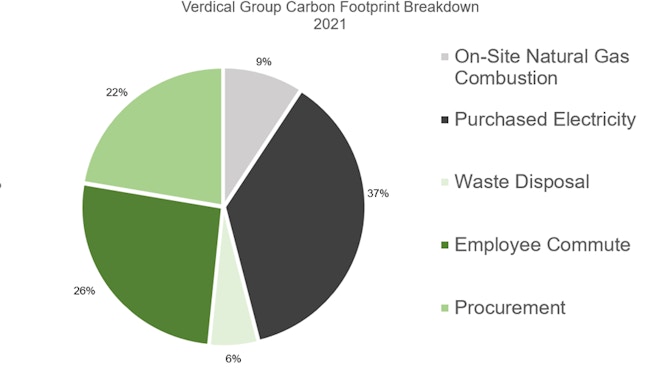
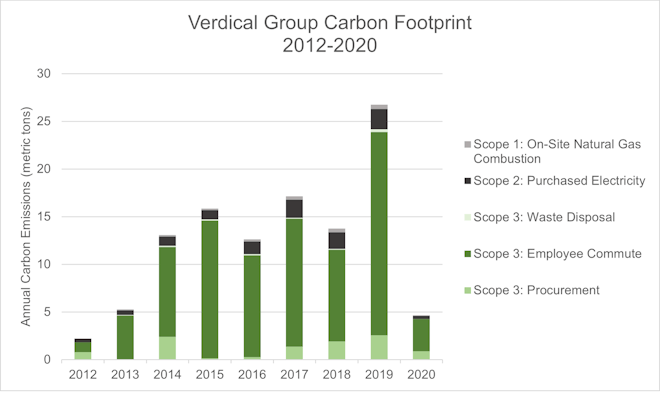
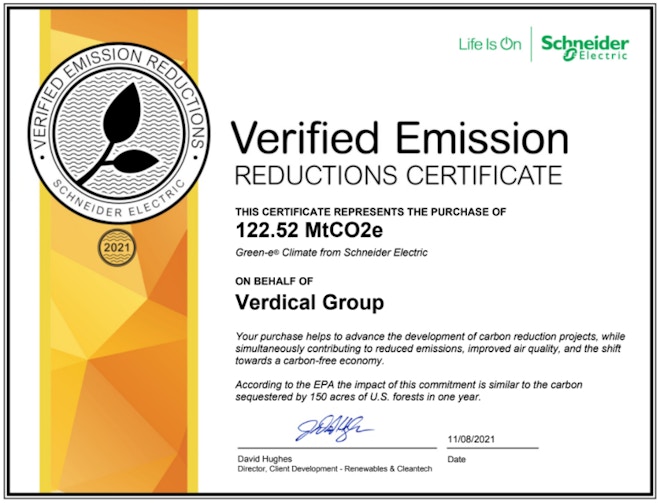
Verdical Group became net positive in 2021 by offsetting our entire historical emissions, plus an additional ten percent.
Until all products and services are truly zero carbon, carbon offsets are the strategy we have available to us today that’s truly going to move the needle on emissions reductions. For all carbon emitted—driving a gas-powered car, for example—something needs to be done to “offset” the carbon emissions to zero out the negative impact. Planting a tree is a straightforward example of a carbon offset project. The tree drinks and stores CO2, removing it from the atmosphere. If all greenhouse gas emissions such as carbon and methane were offset, we wouldn’t have a climate crisis. The problem is that today only a tiny fraction of carbon emissions are offset, less than 1% (Clifford). This needs to change fast. Governments, businesses, and individuals all need to start offsetting their impact.
It's most important to reduce overall emissions as a first step, lessening the need for offsets at all. For example, if you can reduce the carbon emissions of your home heating 50% by installing a heat pump (Theresa Pistochini et al., 2022), that’s 50% less solar panels you’d need to install to offset your carbon footprint. Globally, we need to talk in terms of gigatons of carbon emissions, which peaked pre-COVID pandemic in 2019 at 34 gigatons. Our goal should be for peak emissions to stay in 2019 and to continue to drawdown from here as rapidly as possible. The Net Zero Conference that Verdical Group convenes annually took place at the Los Angeles Convention Center September 14–15, 2022 — many industry-leading companies shared case studies on how they got their projects, products, and companies to zero. The event will occur again next fall, with new updates on innovations and trends in the industry.
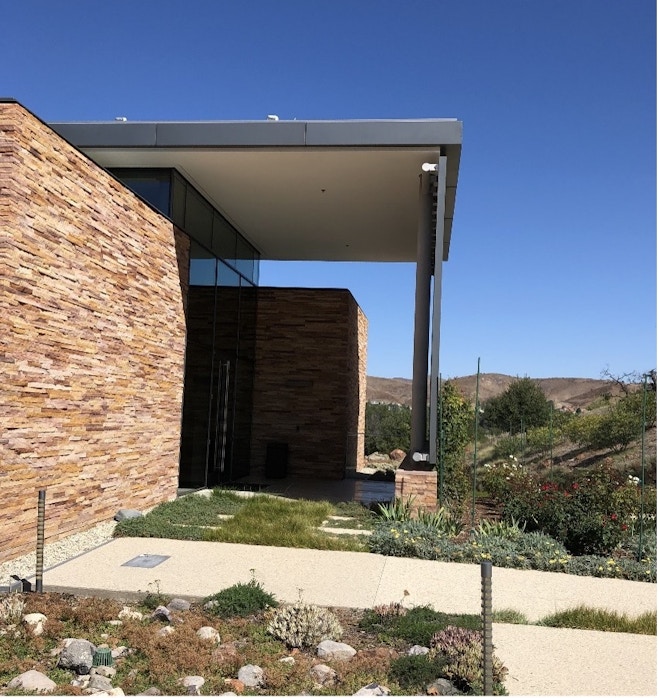
The Conrad Hilton Foundation headquarters in Agoura Hills, CA was designed to net zero standards.
Climate startups are popping up everywhere and are rapidly innovating and finding solutions to change the world for the better. Yes, we should plant billions of trees to drink up and store the CO2 we’re releasing, but we will also need to accelerate the R&D of carbon sequestering technologies. There are some exciting startups already finding success -- climeworks builds direct air capture machines that suck carbon out of the air, CarbonCure stores carbon in cement, and Bright Planet is growing acres of carbon consuming algae in ocean water.
We don’t have time to continue on with business as usual. We can’t go on with a fossil fuel-powered global economy, extracting and burning oil and natural gas. We need transformation across all sectors of the economy to reinvent a zero carbon world. But until every industry achieves zero carbon, we need to offset our emissions in order to avoid the most severe impacts of climate change. Offsets are critical to success.
Radical new ideas, deployed at massive scale, are going to solve the climate change problem we’ve created. It won’t be a single silver bullet strategy, it will be thousands of ideas implemented across every industry. The 2020s will be a decade of climate innovation, of reinventing the world. Bring on renewable energy and electrification. Kill the fossil fuel companies and subsidiary industries who support them. Stop f*cking around and build our zero carbon economy now.
Sources:
EXP. “Award-Winning EA Firm - Our Vision and Values, Ranking + Awards.” EXP, January 11, 2022. https://www.exp.com.
Clifford, Cat. “Bank of America: Carbon Offset Market May Need to Grow Fiftyfold to Meet 2050 Net-Zero Emissions Goals.” CNBC. CNBC, September 27, 2021. https://www.cnbc.com
Hawken, Paul. “Drawdown: The Most Comprehensive Plan Ever Proposed to Reverse Global Warming.” New York: Penguin Putnam Inc, 2017.
Mulhern, Owen. “The Time Lag of Climate Change: Earth.org - Past: Present: Future.” Earth.Org - Past | Present | Future, August 27, 2022. https://earth.org.
NASA. “Climate Change Evidence: How Do We Know?” NASA, February 8, 2022. https://climate.nasa.gov/evidence.
Pistochini, Theresa, Mitchal Dichter, Subhrajit Chakraborty, Nelson Dichter, and Aref Aboud. “Greenhouse Gas Emission Forecasts for Electrification of Space Heating in Residential Homes in the US.” Energy Policy. Elsevier, February 3, 2022. https://www.sciencedirect.com.

Drew Shula is Founder & CEO at Verdical Group, a sustainability consulting firm and certified B Corporation, through which he also founded the Net Zero Conference. He is the sixth person ever to be awarded both LEED Fellow and Living Future Hero awards. Follow Drew for sustainability industry updates on LinkedIn or as “sustainability_ceo” on Instagram.
- Affiliations:
LEED Fellow & Living Future Hero
Founder & CEO of Verdical Group
Founder of the annual Net Zero Conference
Assoc. AIA, LEED AP BD+C, ID+C, GGP, ENV SP
Drew Shula
Verdical Group
Looking for something specific?
Search our extensive library.
FTI’s SKINS email is the central source for the latest in building skin trends and research.
All emails include an unsubscribe link. You may opt out at any time. See our privacy policy.
